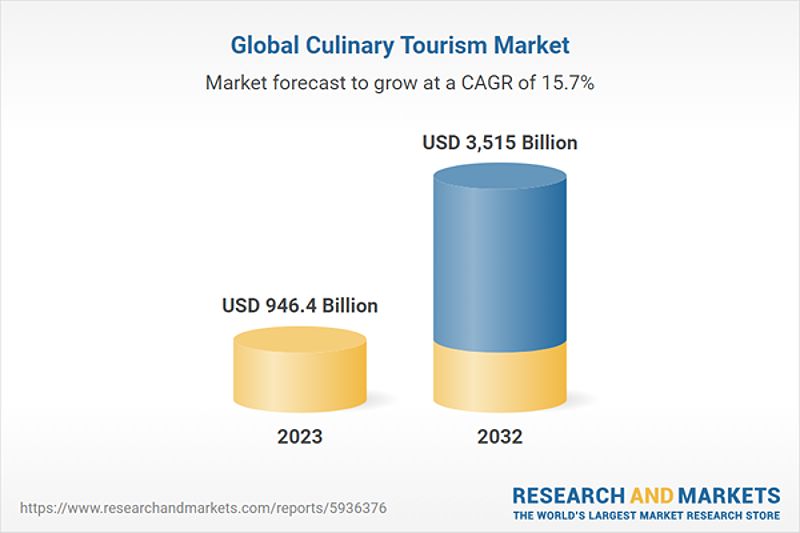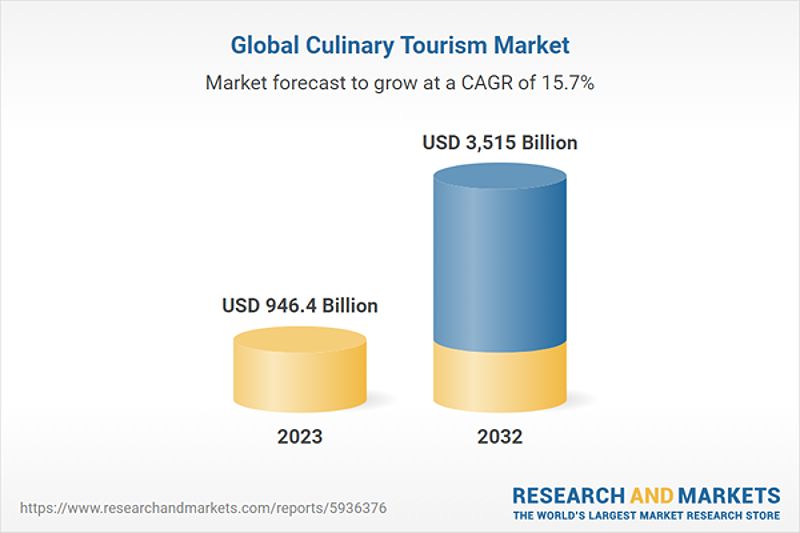Discover the factors driving the steady growth of the global culinary tourism market, including cultural exploration, social media influence, health and wellness trends, economic benefits, culinary education, and innovative dining experiences.
The Rise of Culinary Tourism: Exploring Culture Through Food
The global culinary tourism market is experiencing steady growth, driven by several key factors. One of the primary drivers is the growing desire for cultural exploration and authentic experiences among travelers. Food is an integral part of a region's cultural identity, and sampling local cuisines offers a direct and immersive way to understand different cultures. This trend appeals to travelers who are seeking more meaningful and memorable travel experiences.
The rise of social media has also played a significant role in shaping travel behaviors, with food experiences often being shared and popularized online. The visual appeal of unique and local cuisines, coupled with the storytelling aspect of food, makes it highly shareable content. Social media influencers and food bloggers have become instrumental in inspiring their followers to seek out unique dining experiences, further driving the interest in culinary tourism.
Health and Wellness: A Focus on Conscious Dining
The growing focus on health and wellness is another factor contributing to the market growth. Modern travelers are becoming more health-conscious and are seeking food experiences that align with their lifestyle choices, such as organic, farm-to-table, vegan, or gluten-free options. This shift has led to a rise in destinations offering healthy, locally sourced, and sustainable dining experiences. Culinary tourism is no longer just about indulgence; it is also about experiencing food in a way that is beneficial to both the body and the environment.
Economic Benefits: Supporting Local Communities and Culinary Traditions
Culinary tourism also plays a significant role in local economic development and diversification. By attracting tourists, it provides revenue streams not only for restaurants and food vendors but also for local farmers, market operators, and artisans. This influx of visitors helps sustain small businesses and artisanal producers, preserving local culinary traditions and promoting regional cuisine. Governments and tourism boards often recognize the economic potential of promoting regional cuisines and invest in marketing campaigns and events, further driving interest and economic benefits in the area.
Culinary Education: Learning the Art of Local Cuisine
There is also a growing interest in learning about culinary skills and techniques specific to a region. Many culinary tourists are keen on taking cooking classes, workshops, and food tours as part of their travel itineraries. These interactive experiences provide a deeper understanding of local cuisines and allow travelers to take home new skills and recipes. Culinary education as part of tourism not only enriches the travel experience but also helps preserve traditional cooking methods and recipes.
Innovation in Culinary Experiences: Where Food Meets Entertainment
Innovation in culinary experiences is also contributing to the market growth. Themed restaurants, experimental cuisine, culinary storytelling, and the blending of food with entertainment and technology are attracting tourists looking for unique dining experiences. Immersive dining experiences that combine food with art, performance, or interactive technology create a memorable aspect of travel. Additionally, the trend of pop-up restaurants and secret dining events in various cities around the world adds an element of exclusivity and surprise, further enticing culinary tourists.
The Future of Culinary Tourism: A Continuation of Growth
In conclusion, the global culinary tourism market is witnessing steady growth due to the growing desire for cultural exploration and authentic experiences, the influence of social media, the focus on health and wellness, the economic benefits for local communities, the interest in culinary education, and the innovation in culinary experiences. As more travelers seek to engage with different cultures through their cuisines, the culinary tourism industry is expected to continue its upward trajectory.


